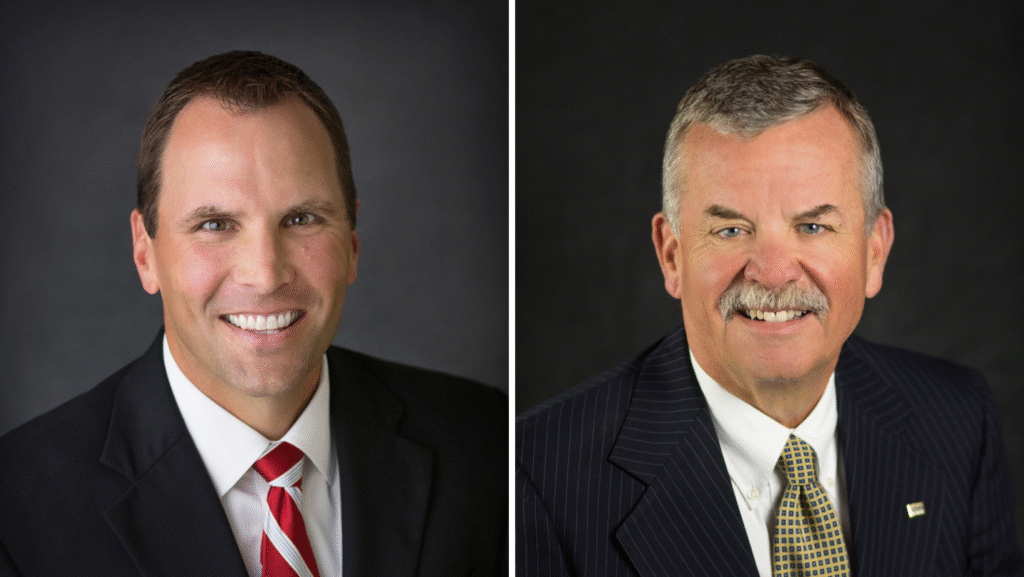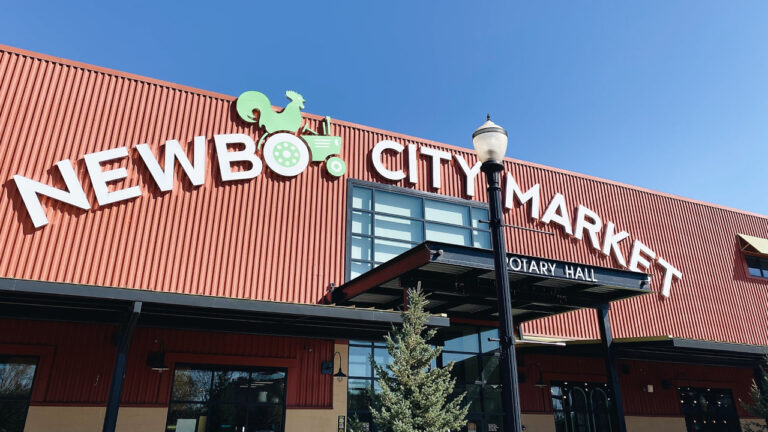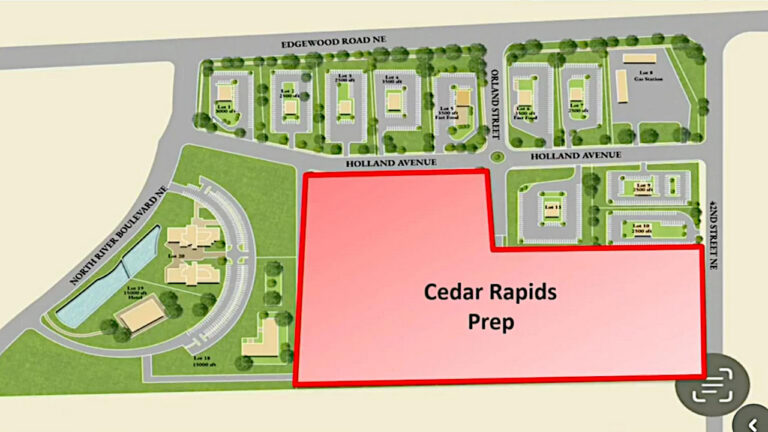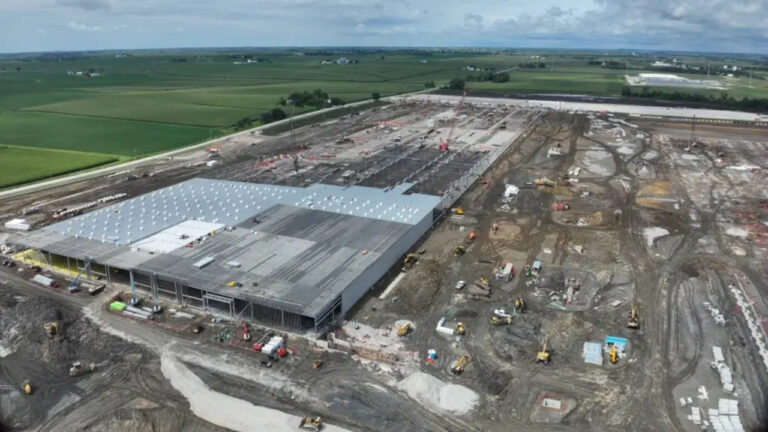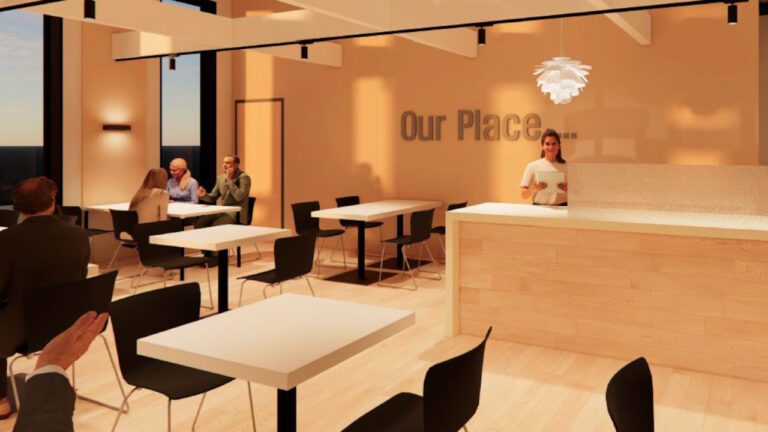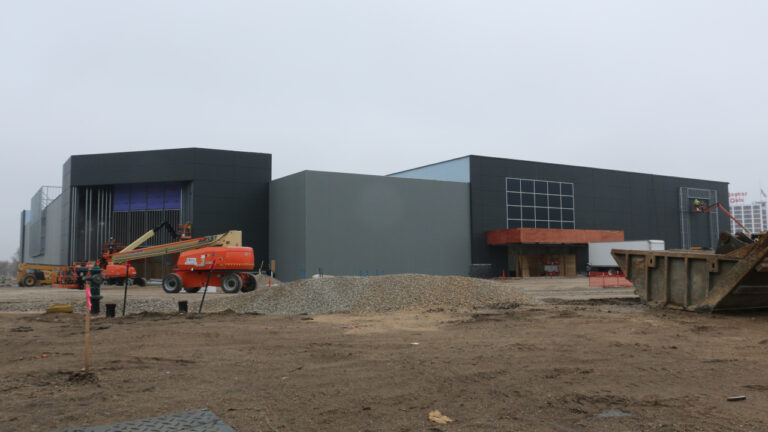Mike and Nate Dunn are the father and son duo leading F&M Bank, the local Iowa bank celebrating its 100th anniversary this year. Nate currently serves as the president and CEO, and his father, Mike, now serves as chairman.
Mike and Nate join me to discuss how they’re celebrating 100 years of business, how they give back to their community, and what it takes to grow in today’s world. The duo also explore the early history of the business, what they’ve learned from each other, and share their advice for other business owners.
I learned a lot and I think you will too.
Sponsored by MidWestOne Bank, this is the latest edition of the CBJ’s Real Success with Nate Kaeding and notable Iowa business and cultural leaders.
Real Success with Nate Kaeding was named Best Business Podcast at the 2024 Iowa Podcast Awards.
Nate Kaeding: This is a timely conversation. We’re just a couple of weeks away from the official 100th anniversary of F&M Bank. What an amazing accomplishment! You actually celebrated the 100th a couple weeks early in Manchester. How was that?
Nate Dunn: Yeah, we were excited to have the block party up in Manchester. We figured that there was no better place to celebrate than where we got our start with F&M, which was in Manchester, Iowa. So we decided to invite 2,500 of our favorite people to come enjoy and celebrate the anniversary with us. We didn’t know what to expect going into that event but our marketing team did an incredible job of planning and spreading the word on that event. The band certainly had some following as well.
Take us back to 1925 and how this organization and this entity got its start. You’re going into the Great Depression as a new bank, and then to survive that whole era and then into World War II – I mean, there has to be some amazing history of the early days of the bank.
Mike Dunn: The bank was formed in 1925. There was a previous bank called Farmers and Merchants State Savings Bank that was formed in 1923, but there was a small crash in 1924 and it failed. The Farmers and Merchants Savings Bank was the bank that came out of that, and it survived the Great Depression of the ‘30s. It was a pretty conservative bank, even up until the time that I originally started in the bank in 1972. I had actually originally come out of college in 1971 and worked at various banks throughout Iowa until my dad bought the bank in November of 1978. In April of ’79, I came back to Manchester.
What did the bank look like in those early days? What was the typical sort of operation?
Mike: A lot of agriculture. F&M was a pretty conservative bank. My predecessor wore three-piece wool suits. Even on a day like yesterday when it was 92 degrees, he’d still be in a three-piece wool suit. His favorite investment wasn’t lending money out. It was buying U.S. government bonds. They’d take in money in CDs. It was the old rule of “take in money at 3%, lend it out at 6%, and go home at 3.”
It was pretty relaxed, pretty conservative, and there was not a lot of competition. Everything was pretty territorial. There were some unusual banks. A bank in Monticello was very aggressive. The bank in Hills was very aggressive. Those banks grew. A lot of banks, though, were like F&M and stayed relatively small.
There are a lot of unique elements to being a smaller, local bank like F&M. Is there something that sticks out to you throughout your history of a cause that you supported or an event that you helped sponsor?
Mike: I think the two biggest things that we’ve been local supporters of is the Good Neighbor Home, the nursing home in Manchester, and also the local hospital.
Nate: Here in Cedar Rapids, Bowl for Kids’ Sake with Big Brothers, Big Sisters is probably where we’ve made our biggest impact. I think we’ve raised over $300,000 in the 17 years that I’ve been involved in that event. We don’t just make it through giving, but we do make it through doing. So we’ve chosen to make a greater impact to a lesser group maybe instead of making a lesser impact to a greater group.
It really goes back to why F&M exists. I think we really exist for three important reasons: One, to allow our clients to live out their personal and professional dreams. Two, to enable our team members to live out their best versions as well, and three, to make a greater impact in the communities we serve collectively versus individually. I think that was happening in 1925 and it’s still happening today.
You mentioned helping businesses and people live out their dreams. Do any specific success stories come to mind?
Nate: I’ll jump in here first, because I’ve heard probably more stories than my father’s heard about this, but there are stories about when people came in to meet with Mike Dunn and he said, “We’ll take care of you.” That meant the deal was done and it was taken care of. I’ve heard of divorce situations where the individual didn’t have a penny left in their bank account and Mike took care of them by getting them a home loan so they could take care of their kids. We had a handful of businesses struggling pre-flood that came out of the flood situation smelling like a rose. There were a lot of devastating things that happened with that flood, but there were a lot of positives that came out of that flood as well. Without naming names, there are some pretty incredible stories that I know he has had a huge impact on.
Mike: My wife says one of my greatest gifts is my gift of discernment. I can take a handshake and I can determine whether the guy is worthy or not. There have been a couple of times where a guy has signed the loan, and by the time he hit my office door, I thought to myself that I might’ve made a mistake. There have been other times when people looked at me and went, “That isn’t going to work out.” Then I said, “Watch, they’re going to take care of it.” A lot of it is just developing the personal relationship and having the gut feeling that the person will literally do everything they can. Sometimes the best answer you give people is no. I’ve gotten referrals from a quick no. I’ll give them a quick no and I’ll say, “…but if I were in your shoes, I’d do this, this, this and this.”
If you were teaching or had any advice for young bankers or business managers in general, how would you teach someone about the skill of discernment or judging human character?
Mike: Listen. I mean, don’t just hear, listen. We came to Cedar Rapids in June of 1994 when we bought the old United Federal office. We bought $2.7 million worth of deposits. We paid an exorbitant premium, but it was by far the best move that we ever made. We had no loans. We didn’t even own the building at the time we ended up buying it. The first couple of days I was sitting there going, “What did I do?” But I went out and met some people. Three quarters of them are still clients of F&M. Cedar Rapids is a big small town, and I just started getting referrals after referrals.
Nate: I think one thing I would add there that he’s saying, but he’s not saying, is that he met them where they were. I think part of that discernment is meeting them where they are, maybe not just physically within their businesses, but emotionally as well.
That’s probably a cool thing about having such a great network or ecosystem of community banks in the Corridor region. You’re able to be more available and nimble.
Nate: There’s not as much red tape and that allows us our ability to make a quick answer and deliver things quickly in a very efficient and effective manner. Definitely gives us a step up on the competition.
What is the difference between successful banking in a smaller community versus a larger community?
Nate: I would say it’s the people that you hire, right? It’s having local people with local connections and local roots as well. It’s always hard to bring somebody in, let’s say, from Omaha to Cedar Rapids, because that individual isn’t going to be known by many of the Cedar Rapids businesses. So we like to raise and grow our own talent. Here at F&M, we have a bunch of good quality community banks around Cedar Rapids, but everyone said, “Why’d you leave Manchester, Iowa?” And my dad’s response was always, “We were in a town of 5,000 people with five community banks. That’s competitive.” Coming down to Cedar Rapids, Iowa was not nearly as competitive.
Mike, how long did you work with your dad, Cecil? How long did you guys overlap at the bank?
Mike: I worked outside of the family for eight years, and I worked with Dad from 1978 until he passed away in 1996. So 18 years.
What did you carry forward in the way he did banking? What did you emulate the most? How are you different?
Mike: He was based out of Eagle Grove. He loved Eagle Grove. He’d come over for board meetings and any events. Dad was a big people person and loved meeting people. He attended all Iowa games, including basketball and football. He was a delegator. He wasn’t as hands-on and didn’t do a lot of business solicitation. I was more hands-on and active in lending. He’d make a lot of suggestions. I’d ignore probably three quarters of them. Take what you want, ignore what you want.
There was a lot of stress in the ‘80s. We had a fair amount of debt just from purchasing F&M at the time, but we were in better shape than we thought we were. We actually skated by pretty good. By 1986, we were pretty well out of the trouble there. We had taken some losses, but they weren’t near what other banks had experienced. Dad pretty much stayed above the fray. I, on the other hand, lost a lot of sleep.
How about you, Nate? What have been some things you’ve picked up from your dad working with him?
Nate: Discernment probably is the number one thing that I’ve learned the most from him. I’m very different than my dad in how I go about things. I’m a little bit more involved in people and a little bit more involved in coaching. My personal mission statement is helping others be extraordinary. So I feel like getting involved in what they’re doing, helping coach them, and helping give them advice. I’d say Dad was really, really good at hiring the right people, especially through our growth period. He found some really, really solid lenders and business development individuals to help grow F&M. Growing from $45 million to almost $750 million – that’s pretty impressive.
I’m doing a little bit more hands-on coaching and teaching because we’re growing a lot of ours internally, which has been positive, but it also comes with some challenges as well, and you’ve got to have some patience. I’ve learned to be more and more patient. Sometimes it can be challenging, but I think the one thing we both do is we trust our gut, and I think that’s really, really important in banking. He has taught me a lot of what I’ve learned. I worked outside the bank for about 10 years prior to coming to F&M. I learned a lot by doing that as well, which I think really helps you grow and mature as an individual.
Was that in the banking industry, or was that elsewhere?
Nate: So I played professional golf for a handful of years down in Florida. Then I went and sold life insurance before I went to work for a buddy in a mortgage company. We did some prime mortgage lending, and then I opened my own shop in the early 2000’s before the mortgage crisis of 2007. It really helped me kind of grow up as an individual versus just graduating college and saying, “Well, my default job is going to be banking.”
I’ll give Dad credit. He never once said, “I want you back in the bank by this year or by this date.” Never. It was always an open conversation, but it was never an expectation. Same thing with my kids. I want them to do what makes them happy and find where they fill up their cup and get passion from, not just take the easy route of saying, “Well, our family owns a bank, so I should go into banking as well.” So he’s taught me a lot over time. My sister has taught me a lot as well. She and I are very, very close, and we’ve worked together for the past 17 years. There are interesting dynamics of working in a family-owned business. There’s no doubt about it. There are a lot of pluses, but there are a lot of challenges that come along with that as well.
What advice would you have for business owners out there?
Nate: Hire the right people. Know who you’re hiring, train them, and treat them like employees. Make them think like business owners as well. Take care of them. Also, just be careful with growth. Growing to just grow is not always the right answer. Over the past couple of years, a lot of peer banks I’ve been talking to have been growing at extraordinary rates. They’ve been stressing out their capital and they’re stressing out their liquidity. They’re having to borrow money.
One thing I learned from my father is that banking is always easiest when rates are flat. It doesn’t matter if they’re flat high or flat low. There’s less volatility. When they’re calm and steady is when it’s easier to do banking. I think it’s the same thing with other business owners. The unknown and the uncertainty causes people not to do things. I think we’re heading into an arena of more certainty and calmness, and I think that’s going to help us be in a great position to grow


